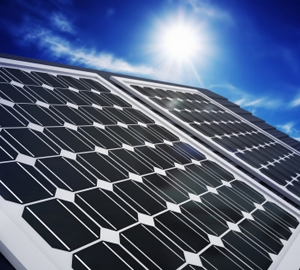Dec 14 2012
A new joint Australian–US research institute led by the University of New South Wales (UNSW) will foster rapid development of “over the horizon” photovoltaic technology and establish Australia as the solar cell research and education hub of the Asia-Pacific region.
 School of Photovoltaic and Renewable Energy Engineering / United States–Australia Solar Energy Collaboration / US-Australia Institute for Advanced Photovoltaics (USAIAP) / professor martin green
School of Photovoltaic and Renewable Energy Engineering / United States–Australia Solar Energy Collaboration / US-Australia Institute for Advanced Photovoltaics (USAIAP) / professor martin green
Federal Minister for Resources and Energy Martin Ferguson announced the $35 million US-Australia Institute for Advanced Photovoltaics (USAIAP) today as part of a raft of new programs and projects through the United States–Australia Solar Energy Collaboration.
The funding is part of an $83 million commitment, one of Australia’s biggest solar research investments.
The new Institute is led by UNSW’s world record-holding photovoltaic researchers. It provides a pathway for research collaboration between Australian and American centres and agencies and will drive innovation and commercialisation.
“We welcome such a significant government investment in renewable energy research and we are pleased that UNSW’s world-leading solar researchers have been recognised in this way,” said UNSW Vice-Chancellor Professor Fred Hilmer.
UNSW, through its School of Photovoltaic and Renewable Energy Engineering, holds the world record in silicon solar cell efficiency. UNSW Scientia Professors Martin Green and Stuart Wenham were recently honoured as inaugural members of the Australian Solar Council’s Solar Hall of Fame.
Program leader Professor Green said: “The Institute (USAIAP) will establish Australia as the photovoltaic research and educational hub of the Asia-Pacific region. It combines our expertise with America’s world-class facilities and creates a tangible pipeline to ‘over the horizon’ photovoltaic technology.”
“The Institute will also be fundamental to the training of the next generation of photovoltaic research scientists and engineers,” he said.
The USAIAP will work with the recently announced National Science Foundation/US Department of Energy Research Center for Quantum Energy and Sustainable Technologies (QESST). QESST is based at Arizona State University, but involves other key US groups including Caltech, MIT and Georgia Tech.
Other US collaborators include Stanford University, University of California – Santa Barbara, and Sandia National Laboratories.
Local partners include the Australian National University, University of Melbourne, Monash University, University of Queensland, the CSIRO, and the NSW, Victorian and Queensland governments.
Also playing key roles are Australian and US-based companies – large entities Suntech Australia, BT Imaging, Trina Solar Energy, BlueScope Steel and smaller start-ups.
The USAIAP is supported by both the Australian Solar Institute and the US National Renewable Energy Laboratory.
UNSW is also involved in five other research projects announced today by the Federal Government through the USASEC Open Funding Round, and will take the lead in two:
- a $5.3 million initiative to develop Tools for design and scale-up of solar thermochemical reactors in partnership with University of Adelaide, Sandia National Laboratories, National Renewable Energy Laboratory (NREL) and Cornell University;
- a $6.7 million project to produce Low cost, high efficiency copper-zinc-tin-sulphide (CZTS) on silicon multi-junction solar cells in partnership with Suntech R&D Australia, the National Renewable Energy Agency (NREL), and the Colorado School of Mines.
Source: http://www.unsw.edu.au/